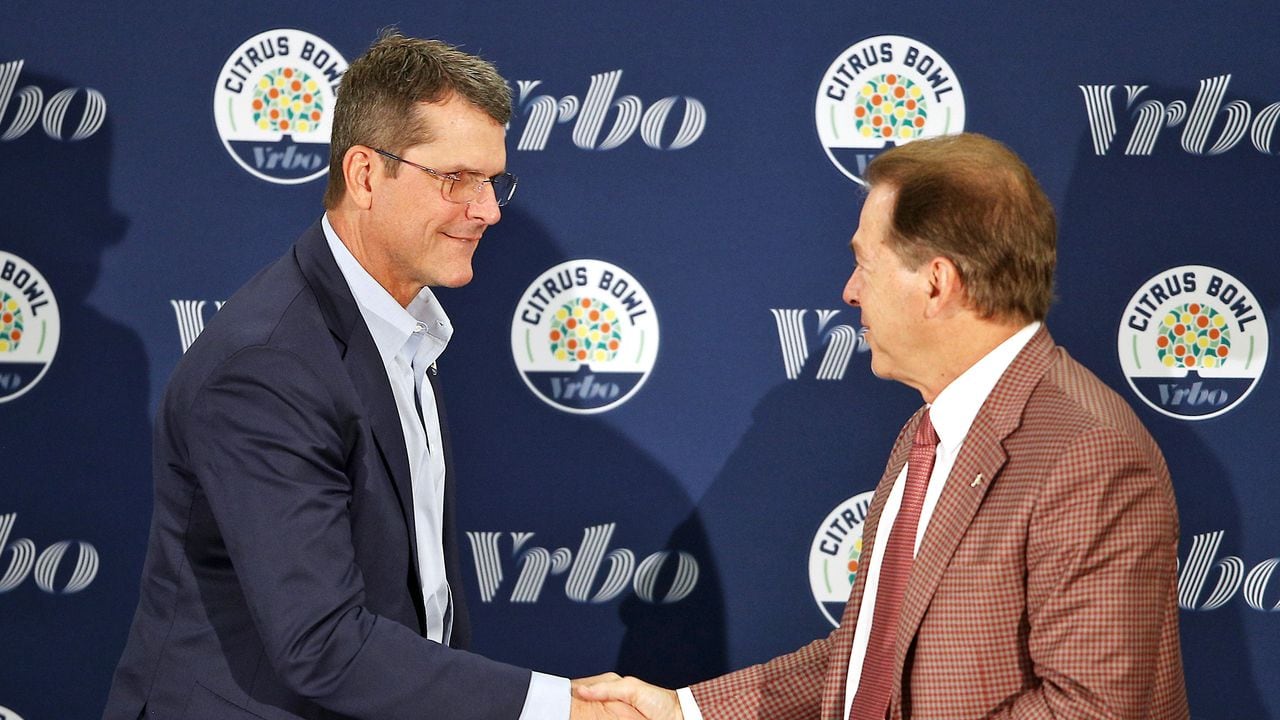Goodman: Amid change, winning still takes more than money
A pregame courtside conversation with an NBA talent evaluator informed my perspective on college athletics going into early national signing day.
We were talking about how college basketball is changing because of the new money being pumped into the sport. The scout’s biggest concern? How to figure out if players are willing to be “coached hard” when they can just hop in the transfer portal at the first sign of trouble.
“Is a player in it for the right reason?” said the scout.
GOODMAN: What Bronny James represents most of all
RELATED: Improving Auburn’s QB position in 2024
RELATED: Inside the return of two Auburn stars
RELATED: Saban explains hiring former Michigan coach
Understand the perspective of an NBA executive. They don’t care who’s making money on the collegiate level. They just need to know if players are going to quit trying as hard when they’re suddenly NBA millionaires and set up financially for life.
Maybe it’s better to have a hard-edged 6-6 forward who persevered and learned a few things from a good coach than a 6-8 former five star who bounced around two or three teams in college and sometimes plays defense like wet socks in the snow.
It all leads me to a bigger question. Is the new reality of collegiate athletics in this pay-for-play world stunting the organic growth of modern-day college players? Not if the players are in it for the right reasons.
Just look at San Diego State and FAU.
Those two teams made unlikely runs to the Final Four last season. San Diego State is coached by Brian Dutcher and Dusty May is at FAU. Dutcher and May had the right mix of transfers and homegrown talent. San Diego State outmuscled Alabama in the Elite Eight with rugged defense and then went on to play for the national championship. Alabama had the stars. San Diego State has the Final Four banner.
Then there’s FAU. The unlikely Owls played like a team of selfless veterans all season, destroyed UAB in the Conference USA tournament and then made a Final Four run for the history books. Something tells me it’s not because FAU was paying more for its players last season than NCAA Tournament opponents Tennessee and Memphis.
The same team-building concepts apply to college football.
Two mechanisms of team building are available to football coaches at the moment. There’s early national signing day, which begins on Wednesday, and then there’s the transfer portal. For an enterprising coach and motivated fan base, there has never been a better time in college football to build a national title contender.
The College Football Playoff is expanding to 12 teams next season. Opportunity is the engine of change. Who’s going to be the FAU and San Diego State of college football?
For a coach like Auburn’s Hugh Freeze, who has been working tirelessly to build the Tigers’ new roster, modern day college football is like a blank canvas. Strengthening Auburn’s NIL collective was the first order of business for Freeze and new Auburn athletics director John Cohen. On the basketball court, Auburn’s Bruce Pearl has used Auburn’s NIL collective to keep the core of his team together. With the addition of Aden Holloway, the basketball Tigers look like an early favorite to win the SEC.
Pay-for-play is the new reality of major college athletics. It’s so prevalent that what was once taboo is now openly discussed. SMU football got the death penalty for paying players. Going into 2024, everyone is getting a bag for Christmas. Just in case anyone needs a refresher, here’s how players in college are currently being paid. NIL collectives are third-party contractors of teams. The collectives pool the money of fans/boosters and then pass it on to the players. It’s a workaround for schools.
RELATED: Previewing Alabama’s football class of 2024
RELATED: Auburn lands Kansas transfer
The top programs in the football recruiting rankings are paying big money for their prospects these days. It’s not a guarantee for success, though. Just ask Jimbo Fisher. There’s still an important element of the game that money can’t buy, and the best executives in professional sports have known it forever.
In the NBA and NFL, where everyone gets paid, building a roster is all about finding people who are motivated by something beyond the money. Collegiate athletics is messier because there are no salary caps, no contracts, no draft and free agency happens twice a year. Don’t let it obscure reality, though. Money alone can’t compete with desire.
No matter how things change, the teams that win championships will be the ones that love to rebound and tackle.
Joseph Goodman is the lead sports columnist for the Alabama Media Group, and author of the most controversial sports book ever written, “We Want Bama”. It’s a love story about wild times, togetherness and rum.
